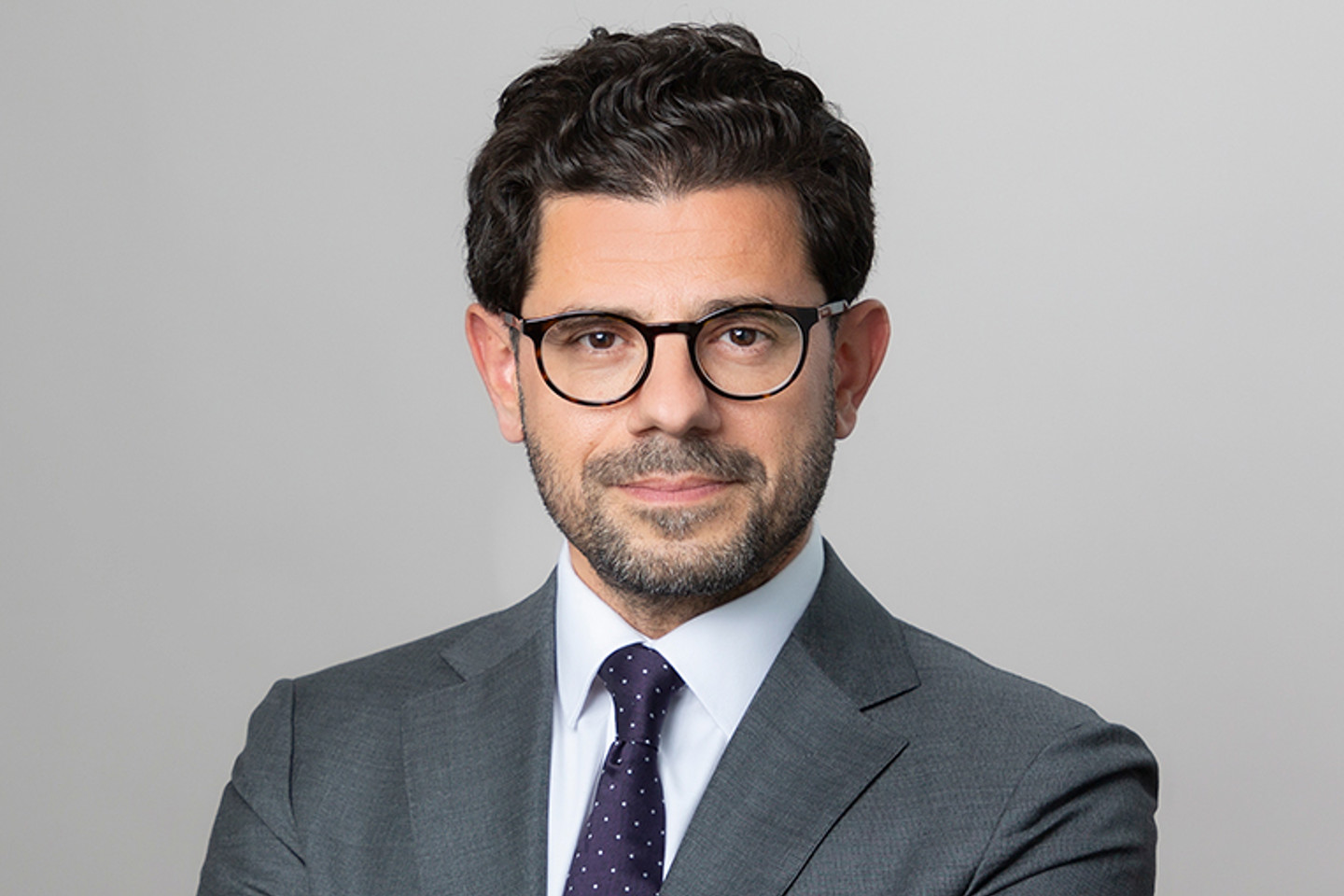
Jad Nader
Partner | Legal
Luxembourg Legal Services

Jad Nader
Partner
Luxembourg Legal Services
No Content Set
Exception:
Website.Models.ViewModels.Components.General.Banners.BannerComponentVm
Luxembourg is one of the largest global investment fund domiciles, benefiting from the following factors:
In September 2014 the assets under management for Luxembourg-domiciled investment funds increased to over € 3,000 billion.
These funds comprise both alternatives and UCITS and the overwhelming majority have cross-border distribution.
For those US and other non-EU managers wishing to access EU institutional investors, Luxembourg's onshore-international, EU platform has a key role to play in parallel with managers' structures in the core, non-EU fund domiciles of Delaware, Cayman Islands, Channel Islands and BVI.
Historically, the ability of asset managers, wherever established to distribute funds to EU institutional investors was determined exclusively by the national securities laws of the individual jurisdictions where the investors were located.
Since the complete entering into force of the EU alternative investment fund managers directive (AIFM and AIFMD respectively) in the national laws of EU member states in July 2014, the position has changed.
AIFMD applies in relation to (1) the management, by managers established in the EU, of alternative investment funds (AIF) (wherever the funds are established) and (2) the marketing of AIF (wherever established) by managers (wherever located) to non-retail, EU investors.
This briefing summarises the options available for US and other non-EU managers to raise capital from EU institutional investors post-AIFMD.
For non-EU managers wishing to market to EU professional and/or institutional investors, there are four options:
Reverse solicitation is not prohibited or regulated under AIFMD. The directive refers to marketing as any direct or indirect offering or placement by or on behalf of the AIFMD manager. Therefore, reverse solicitation, which occurs at the instigation of the investor, and not at the instigation of the manager, is not affected by the directive.
Reverse solicitation may therefore provide a realistic mechanism to continue to access EU institutional investors where the manager's relationship with that investor has a significant vintage and it can be demonstrated either (1) that the investor actively approached the manager to seek information on investment opportunities in the specific AIF in question (and not in response to any action by or on behalf of the manager), or (2) that the marketing by the manager to that investor of the particular AIF commenced prior to the expiry of the grand-fathering period following the introduction of AIFMD, in July 2014.
This will be fact sensitive in each case. It will also be subject to the position on reverse solicitation in each relevant national jurisdiction where the investors are situated. Wherever relied on, it will be prudent to clearly document when and how both the relevant investor relationship and the marketing of the relevant AIF commenced.
Inevitably, as time passes following AIFMD's entering into full force and effect in July 2014, the ability to realistically rely on reverse solicitation is likely to reduce in scope.
AIFMD provides that eligible non-EU structures may continue to market to EU professional/institutional investors using available national private placement regimes until at least 2018.
The AIFMD criteria that the non-EU structure must meet in order to continue to use available national private placement distribution networks are as follows:
The first criterion, the existence of inter-regulator co-operation agreements, is considered to also imply a requirement that the AIFM is subject to regulatory authorisation and oversight in its jurisdiction of establishment.
The required regulatory co-operation agreements OECD white-list status and tax information exchange agreements are in place between each of Cayman Islands, Jersey, Guernsey and BVI and the vast majority of EU member states, in particular, many of those relevant for fund distribution purposes.
The AIFMD-required investor disclosures are not unusual or onerous in themselves but may require the use of an AIFMD-compliance wrapper to a fund's offering memorandum (OM) in order to complete any gap analysis.
The regulator reporting obligations require the non-EU manager to use an ESMA pro-forma reporting template to report annually and either quarterly or semi-annually (depending upon assets under management) to the national regulator in each target-investor, EU member state where marketing occurs. The annual reporting includes financial and activities reporting for each AIF marketed in that member state together with any material changes to OM disclosures, a summary of the total remuneration paid by the AIFM, the number of recipients of that aggregate remuneration and the fixed and variable allocations within it. The quarterly or semi-annual reporting includes a summary of the AIF's principal assets or trading, any change to liquidity arrangements, stress testing results, and a summary of the risk and leverage profiles.
The definition of a "letter-box entity" in AIFMD is not exhaustive. It refers to the AIFM: retaining decision-making powers in relation to investment management and risk management; to not delegating the conduct of both of those competencies; to having the expertise and resources to conduct the retained competency and to frequently and meaningfully monitor and supervise any delegated competency.
Whilst there is no express requirement under AIFMD for the AIFM to have its own physical premises and employees, certain jurisdictions including Luxembourg, do apply such a requirement as a matter of national regulatory practice. Where managers choose to establish an AIFM in an eligible non-EU jurisdiction, certain managers are therefore also choosing to establish a physical presence by analogy. Please seek specific advice in each case.
One advantage of this route to EU investors is the relatively limited additional AIFMD compliance requirements. Numerous structural and operational requirements of AIFMD simply do not apply, including the full scope of the remuneration policy.
Managers establishing in such non-EU, eligible jurisdictions, such as in the Channel Islands will also be subject to applicable, domestic-law regulation.
It is also the case that there is no EU capability under AIFMD to close national private placement regimes until July 2018.
Under AIFMD, national private placement regimes may only be mandatorily terminated by the EU Commission, from July-October 2018 following: (1) a positive recommendation from ESMA from July 2015 as to the extension of the AIFMD marketing passport to non-EU AIFM; and (2) a separate, positive recommendation from ESMA from July 2018 as to the use of the AIFMD passport as the sole marketing regime to be available to non-EU AIFM for EU professional/institutional investors. The various criteria to be applied by ESMA include:
Following a conclusion by ESMA in 2018 of no significant obstacles in relation to these criteria, it shall issue positive advice to the EU Commission which shall then replace all national private placement regimes with the AIFMD passport as the sole permitted means of marketing to EU non-retail investors.
Thus, until at least 2018, where managers target EU investors located in EU jurisdictions with ongoing, user-friendly national private placement regimes, this continues to provide a relatively attractive route to market.
However, although no EU capability exists to terminate or restrict existing national private placement regimes prior to 2018, it is also the case that certain EU member states have tightened or stated an intention to tighten, under national law, their existing private placement regimes prior to that date. For example, Germany now requires a new form of notification to, and approval from, the German regulator and the Netherlands has indicated a very similar proposal to change its national securities laws. It is also the case that some jurisdictions' existing national private placement regimes are considered less feasible to use in practice.
Finally, internal asset allocation preferences as to fund/manager domicile appear to indicate amongst certain, but not at this time a substantive class of, EU institutional investors a growing emphasis on full OECD member-state domicile requirements.
In light of the continuing, practical availability of a number of national private placement regimes for the foreseeable future, the principal non-EU, European-international fund domiciles have reviewed and amended their domestic fund and manager regulation so as to include fully-compliant AIFMD options for managers and funds, both to facilitate continued use of national private placement regimes and in anticipation of the extension of the AIFMD passport following 2015 to managers and funds established in the Channel Islands.
Establishing an EU, AIFMD-authorised manager and fund provides distribution advantages to market to EU-domiciled professional and institutional investors today. These advantages include:
In each case however, this will also require full compliance with AIFMD and any applicable, national fund regulation. Full AIFMD compliance requirements are a detailed area, the following is a summary of headline points only:
Notification of ownership-threshold changes in portfolio companies
Notification to portfolio companies of annual business review, future development & conflicts management policies
"Asset-stripping" restrictions
No capital returns from portfolio companies & no distributions greater than available profits for two years post-acquisition.
Where an EU AIF is also utilised, the Luxembourg specialised investment fund provides one of the most frequently used onshore-EU models. Please refer to our client briefing at www.ogier.com, Luxembourg, publications, "Luxembourg SIF and SICAR" for full details.
One discernible trend in relation to structure domicile selection relates to requirements for a greater degree of physical presence arising from a variety of sources.
In addition, AIFMD requires an additional overlay of regulatory substance. In response to this, certain managers are selecting a structure domicile with a view to satisfying as many of such overlapping requirements in a single jurisdiction.
In response to this development, Luxembourg has introduced a new limited partnership vehicle, the Special Limited Partnership, specifically modelled on international, Anglo-American fund limited partnership norm to enhance its alternatives platform. This platform therefore now provides, in a single location the following, fully resourced model:
The Luxembourg market has also developed AIFMD-authorised management companies to provide EU-international, AIFMD-authorised distribution advantages to asset managers preferring not to establish a proprietary AIFMD platform.
Professional service providers have responded to the effect of AIFMD's marketing provisions in relation to non-EU managers, by developing a professional AIFMD services offering.
Whereas the detail, effect and pricing of such services will in each case be fact specific, the intended effect, is always to provide the services of an institutional, professional AIFM for the purposes of AIFMD, to enable continued marketing to EU institutional investors for such non-EU asset managers preferring not to establish their own platform.
The emerging framework in these cases will often entail identifying the professional AIFM as such in relation to a particular AIF. The advantage for the non-EU asset manager is to enable the continued marketing of its fund (whether EU or non-EU) under the AIFMD marketing passport to EU institutional investors, throughout the EU. The structural effect of this is also to ring-fence all the AIFMD compliance requirements, including application of remuneration policy, to the professional, regulated AIFM and not to impose them on the non-EU asset manager. It does however require the professional AIFM to have a responsibility for (at least) risk management in relation to relevant AIF. In addition to pricing questions for this service, the necessary level of involvement by such a third party service provider in relation to the relevant fund is an area of on-going consideration by asset managers in this developing area.
This briefing provides a general summary only of this area based on current law and practice in Luxembourg at November 2014 and is subject to changes therein. It does not purport to be comprehensive and is intended for information only. It does not constitute specific advice issued on a reliance basis. Such specific legal advice should be sought on each occasion.

Jad Nader
Partner | Legal
Luxembourg Legal Services

Jad Nader
Partner
Luxembourg Legal Services

Anne-Gaëlle Delabye
Partner | Legal
Luxembourg Legal Services

Anne-Gaëlle Delabye
Partner
Luxembourg Legal Services

Laurent Thailly
Partner | Legal
Luxembourg Legal Services

Laurent Thailly
Partner
Luxembourg Legal Services
Ogier is a professional services firm with the knowledge and expertise to handle the most demanding and complex transactions and provide expert, efficient and cost-effective services to all our clients. We regularly win awards for the quality of our client service, our work and our people.
This client briefing has been prepared for clients and professional associates of Ogier. The information and expressions of opinion which it contains are not intended to be a comprehensive study or to provide legal advice and should not be treated as a substitute for specific advice concerning individual situations.
Regulatory information can be found under Legal Notice
Sign up to receive updates and newsletters from us.
Sign up
No Content Set
Exception:
Website.Models.ViewModels.Blocks.SiteBlocks.CookiePolicySiteBlockVm